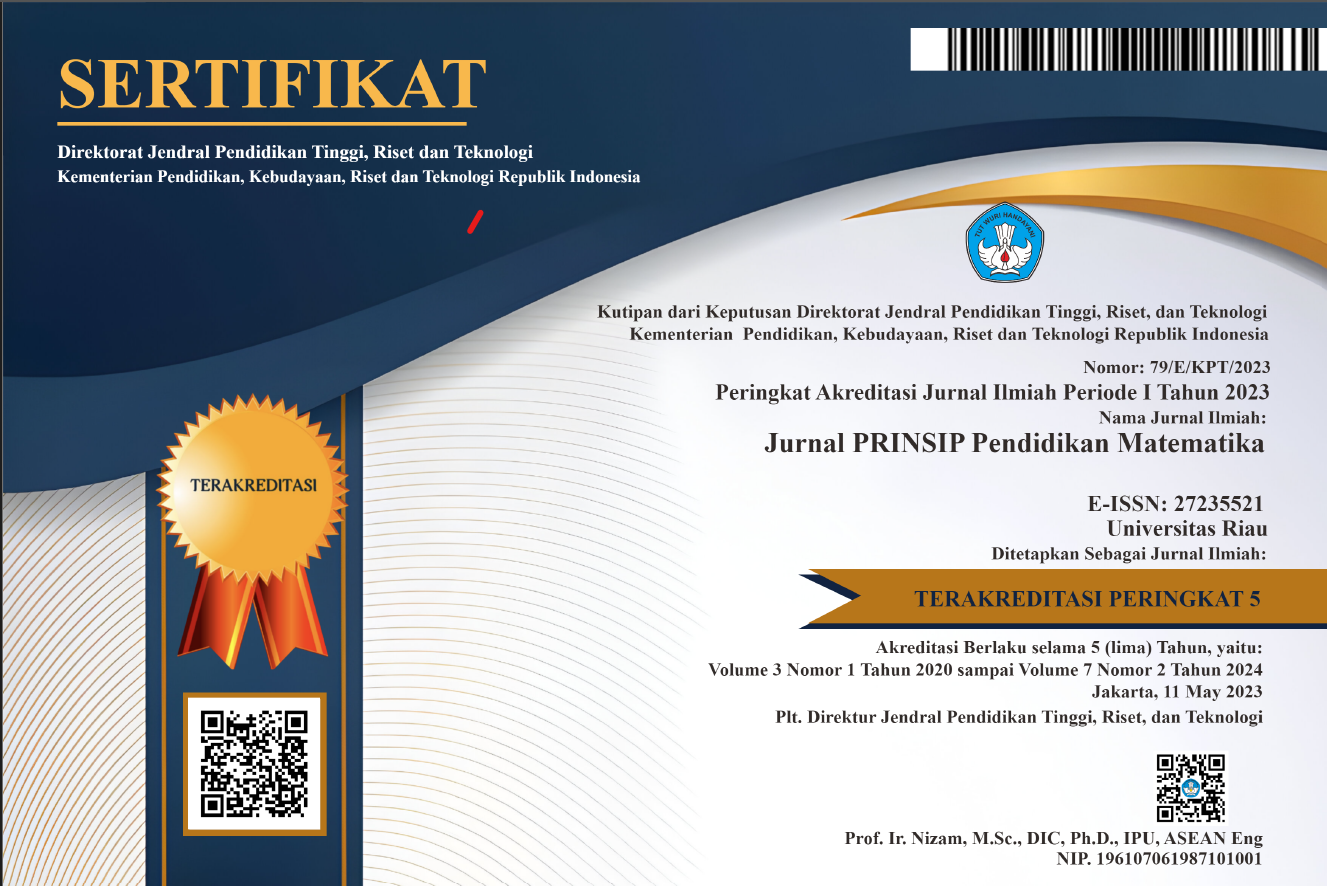IMPLEMENTATION OF METACOGNITION QUESTIONS THROUGH THE IMPROVE METHOD TO TRAIN STUDENTS’ MATHEMATIC CRITICAL THINKING ABILITY
Abstract
The ability to think critically is one of the very important abilities that students have and improve in learning mathematics. This ability is very necessary to solve daily problems and problems that will come. One of the efforts made to improve critical thinking skills in learning mathematics is by using the IMPROVE method. In the IMPROVE method, the question of metacognition is the main key that must be presented by educators in this method. This question aims to improve the ability to understand, analyze, and self-regulate the application of problem solving, and make connections between initial knowledge and new knowledge. The purpose of critical thinking is to be able to test an opinion or idea, including making considerations or thoughts based on the opinions proposed. Developing one's critical thinking skills can help in making conclusions by considering data and facts that occur in the field. Critical thinking allows students to find the truth amidst the flood of events and information that surrounds them every day (Johnson E, 2002). The calculation of the research result of learning mathematics at SMA Negeri 2 Barru using the IMPROVE method on the Linear Program material obtained the average value is 57.35, the mode value is 54.15, the median is 56.7, the standard deviation is 10.70, the maximum value is 87, the minimum value is 45.
Downloads
References
Anderson, L.W., & Krathwohl, D.R. (Eds) (Translator: Agung Prihantoro). (2010). Kerangka landasan untuk pembelajaran, pengajaran, dan asesmen: Revisi taksonomi pendidikan Bloom. Pustaka Pelajar
Arikunto, S. (2019). Prosedur Penelitian Suatu Pendekatan Praktik. Rineka Cipta
Branch, R.M. (2009). Instructional design: The ADDIE Approach. Springer Science & Business Media
Depdiknas. (2006). Peraturan Menteri Pendidikan Nasional Republik Indonesia No 22 Tahun 2006 tentang standar isi untuk satuan pendidikan dasar dan menengah. BSNP
Dewi, R.K., Rosidin, U., Nyeneng, I.D.P. (2013). Pengaruh keterampilan metakognisi terhadap keterampilan berkomunikasi dan keterampilan berpikir kritis. Jurnal Pembelajaran Fisika, 1(2), 35 – 44
Early, O.A., Winarti, E.R., Supriyono. (2018). Analisis kemampuan berpikir kritis matematis ditinjau dari kemandirian siswa kelas VIII melalui pembelajaran model PBL pendekatan Saintifik berbantuan Fun Pict. PRISMA, Prosiding Seminar Nasional Matematika, 1, 388-399
Johnson, E.B. (2010). Contextual teaching and learning: Menjadikan kegiatan belajar-mengajar mengasyikkan dan bermakna. Kaifa
Kramarski & Mizrachi, N. (2001). Enhancing mathematical literacy with the use of metacognitive guidance in forum discussion. Proceedings of the 28th Conference of the International Group for Psychology of Mathematics Education, 3
Liberna, H. (2012). Peningkatan kemampuan berpikir kritis matematis siswa melalui penggunaan metode Improve pada materi Sistem Persamaan Linear Dua Variabel. Jurnal Formatif, 2(3), 190 – 197
Mujib. (2016). Mengembangkan kemampuan berfikir kritis melalui metode pembelajaran Improve. Al-Jabar: Jurnal Pendidikan Matematika, 7(2), 167 – 180
Trilling, B., & Fadel, C. (2009). 21st century skills: Learning for life in our times. Jossey-Bass/John Wiley & Sons, Inc.
Copyright (c) 2020 Jurnal Prinsip Pendidikan Matematika

This work is licensed under a Creative Commons Attribution-NonCommercial-ShareAlike 4.0 International License.





